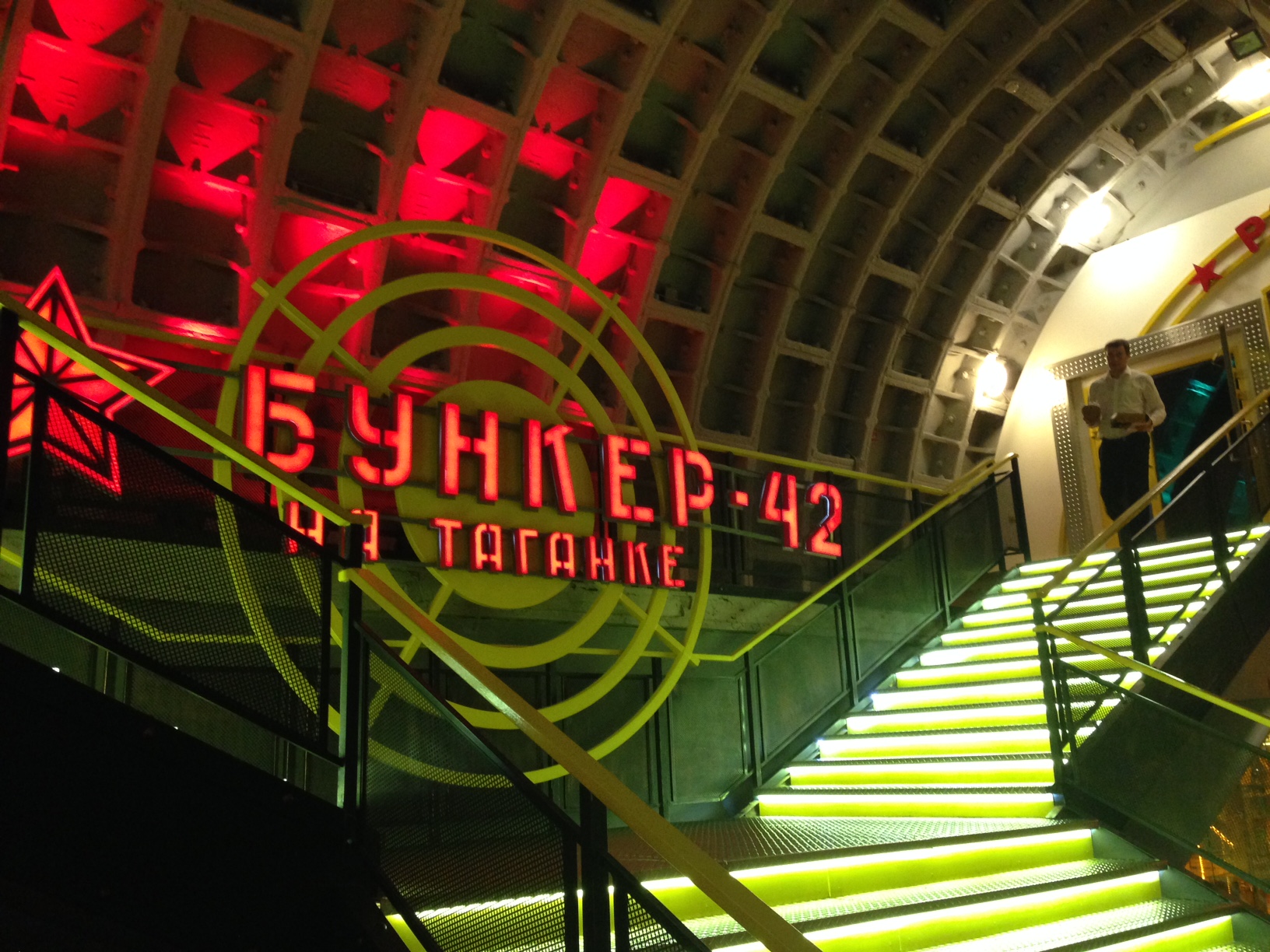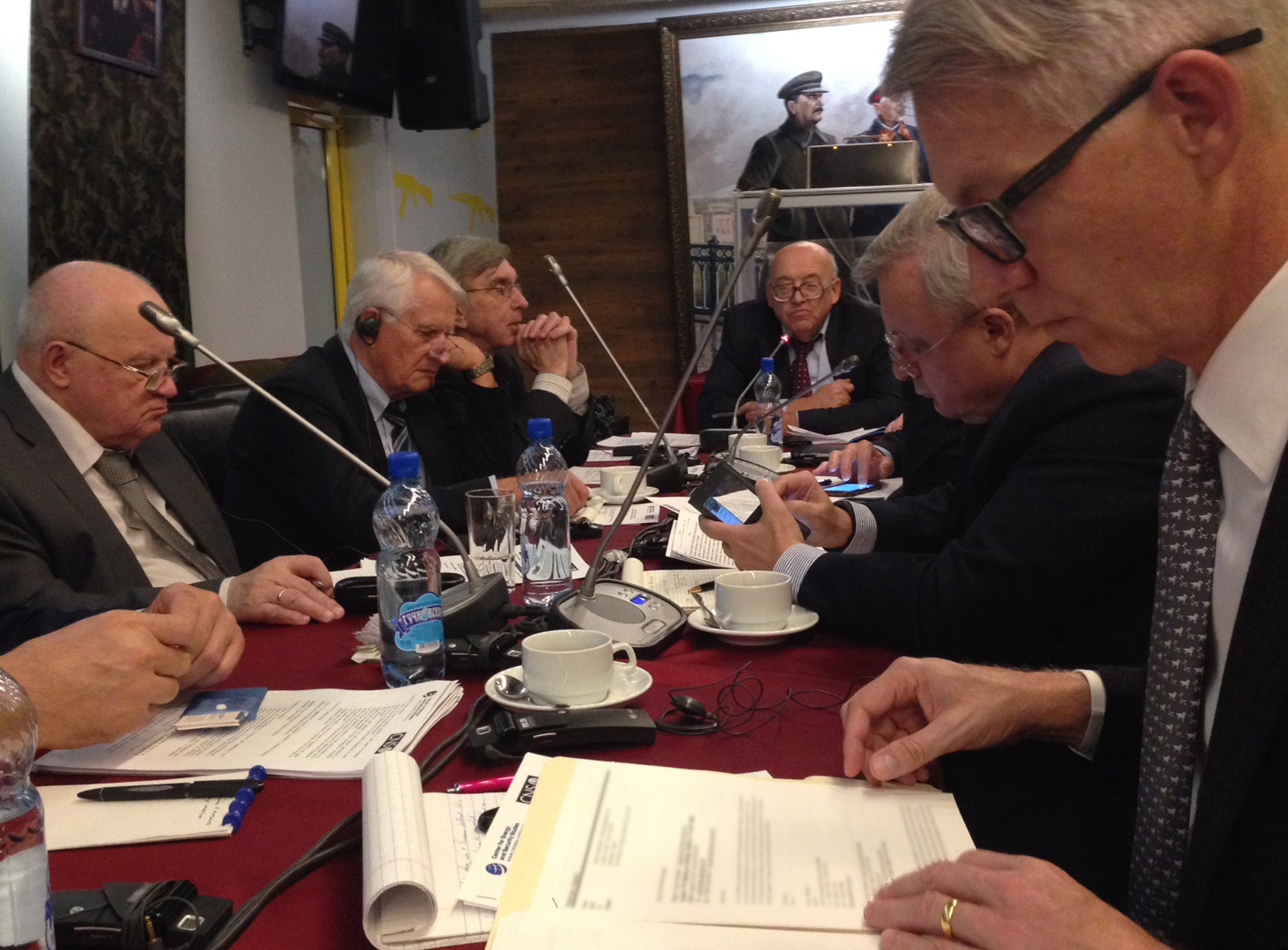November 22, 2017
On October 19, 2017, US and Russian experts gathered in Moscow for a track 1.5 dialogue on nuclear issues. The event—held in a Soviet-era command-and-control bunker 65 meters underground—was the fourth in a series of workshops organized by the Moscow-based Center for Energy and Security Studies (CENESS) and the James Martin Center for Nonproliferation Studies (CNS). The workshop focused on strategic stability in bilateral relations between the two countries. Specifically, the discussion included the definition of strategic stability, prospects for regulating activities in outer space, and various confidence-building measures and crisis-management mechanisms. A working lunch featured discussion with Russian Deputy Foreign Minister Sergey Ryabkov, who had attended two previous workshops in Monterey and Moscow.

Moscow Command and Control Bunker
Throughout the day-long workshop, participants identified challenges that, in their view, complicated the maintenance of strategic stability. These included the impact of new technologies on the bilateral relationship and allegations of Intermediate-range Nuclear Forces (INF) Treaty violations by both Washington and Moscow. In light of the deepening crisis in US-Russia relations and the looming expiration of the 2010 New Strategic Arms Reduction Treaty (New START) in 2021, participants discussed the prospects for extending the existing treaty and/or negotiating a follow-on agreement. While views diverged significantly, there was general acknowledgment that arms control remains of central importance to the maintenance of strategic stability. They also noted that failure to extend or replace New START would mark the first time in decades that the two countries were not engaged in bilateral nuclear-arms reductions.
While much of the workshop discussion focused on identifying threats to strategic stability, including the waning influence of arms control, participants from both countries believed there were still opportunities for building confidence and increasing transparency. It was suggested, for example, that in an environment characterized by deep mistrust, it was especially important to increase face-to-face interactions in order to reduce miscalculations and miscommunication. A number of participants also voiced the need for greater government investment in rebuilding a practitioner base of knowledgeable experts on US-Russia nuclear issues. In addition to greater attention to the “human factor,” some participants raised the possibility—or even the desirability—of exploring alternative forms of arms control, perhaps involving asymmetrical approaches. Although there was no consensus on specific recommendations, participants shared the view that normalizing relations was of fundamental importance to the maintenance of strategic stability.
Papers
“From Reykjavik to Twitter: A Toolkit for Avoiding Instability in U.S.-Russia Relations,” discussion paper by Dr. Heather Williams, King’s College London
“Some Reflections on Strategic Stability and its Challenges in Today’s World,” discussion paper by Dr. Lewis A. Dunn

US-Russian Dialogue on Strategic Stability
